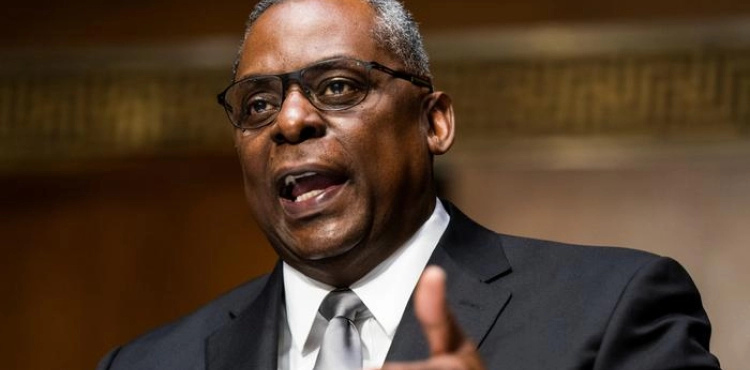US Defense Secretary Lloyd Austin made an unannounced visit to Afghanistan on Sunday, weeks before the scheduled date to complete the withdrawal of American soldiers under the agreement concluded between Washington and the Taliban last year.
US President Joe Biden stressed last week that it would be "difficult" to stick to the May 1 deadline that his predecessor Donald Trump´s administration agreed with the movement, angering Afghan insurgents who warned Washington that it would "bear responsibility for the consequences" of any delay.
In turn, the Afghan government seeks to keep US forces in the country for as long as possible due to the air cover it provides.
After talks with Afghan President Ashraf Ghani on Sunday, Austin declined to comment on the deadline. "This is a major specialty," he said.
And he continued, "President (Biden) will take this decision at some stage, in terms of how he wishes to deal" with the issue.
Under the agreement with Washington, the insurgents pledged to engage in direct peace talks with the Afghan government, but no progress was made in this regard as the battles between the two sides intensified, especially in rural areas.
Major city centers are also witnessing a bloody campaign of intimidation, with the assassination of politicians, civil servants, academics, human rights activists and journalists.
Kabul was the last stop on an Asian tour by the new defense minister, who was a soldier who served in Afghanistan as a division commander from September 2001 until August 2005.
Austin and his aides traveled to Afghanistan on a regular US plane, rather than the military plane that usually carried US officials to the troubled country.
Details of the visit were kept secret for security reasons until he left Afghanistan.
When asked about the Taliban warning of the consequences that Washington will face unless the deadline for withdrawal is adhered to, Austin said he was certain that the US forces would be able to deal with the matter.
"I have great confidence in his ability to protect our soldiers," he said, referring to the commander of US and NATO forces in Afghanistan, General Austin Miller.
Austin’s visit comes at a time when the United States is working hard to give new impetus to the stalled peace process, with Doha hosting the related talks since September, as the two rival parties have not yet agreed on its agenda.
Last week, Moscow hosted a meeting of the main players in an effort to break the deadlock, but without any concrete proposals. Turkey is due to host a wider conference next month.
The United States, Russia, and other concerned parties are looking to reach the formation of a transitional government to take power in Afghanistan, but Ghani insists that the country´s leaders can only be chosen through the ballot box.
Having made huge gains on the ground, the Taliban seem uninterested in either strategy.
The co-founder and deputy leader of the Taliban, Mullah Abdul Ghani Baradar, called during the Moscow conference to "let the Afghans decide their fate."












